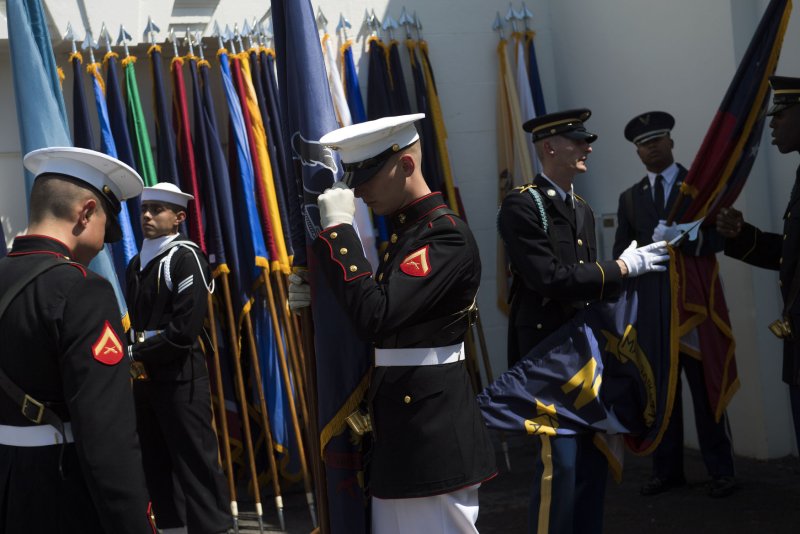A new study shows that military service may boost well-being and quality of life for transgender veterans. Photo by Kevin Dietsch/UPI |
License Photo
April 24 (UPI) -- A new study found that transgender people in the military may get long-term, positive benefits on their mental health, quality of life from military service.
The study from the University of Washington School of Social Work found that among transgender older adults, individuals who served in the military reported having fewer symptoms of depression and greater mental health-related quality of life.
Transgender people serve in the military at higher rates than those in the general population with 15 percent of the 28,000 individuals in the 2015 U.S. Transgender Survey reported serving in the military. That is higher than the 9 percent who reported serving in the military from the general U.S. population.
Previous studies showed transgender veterans had higher rates of depression than other veterans, however, UW researchers found just the opposite. Transgender veterans surveyed tended to have better mental health than transgender people who hadn't served in the military.
Researchers surveyed 2,450 people ages 50 to 100 from the Aging with Pride study, 183 identified as transgender. Nearly one-fourth or 43 of those individuals reported serving in the military, with 57 percent identifying as female.
"Many people develop an identity as a military person -- that it's not just something they did but something they are," Charles Hoy-Ellis, a former UW doctoral student and lead author of the study, said in a press release. "If transgender people, who are among the most marginalized, can successfully navigate a military career, with so many of the dynamics around gender in the general population and in the military, then that experience can contribute to a type of identity cohesiveness."
The study was published in The Gerontologist.















